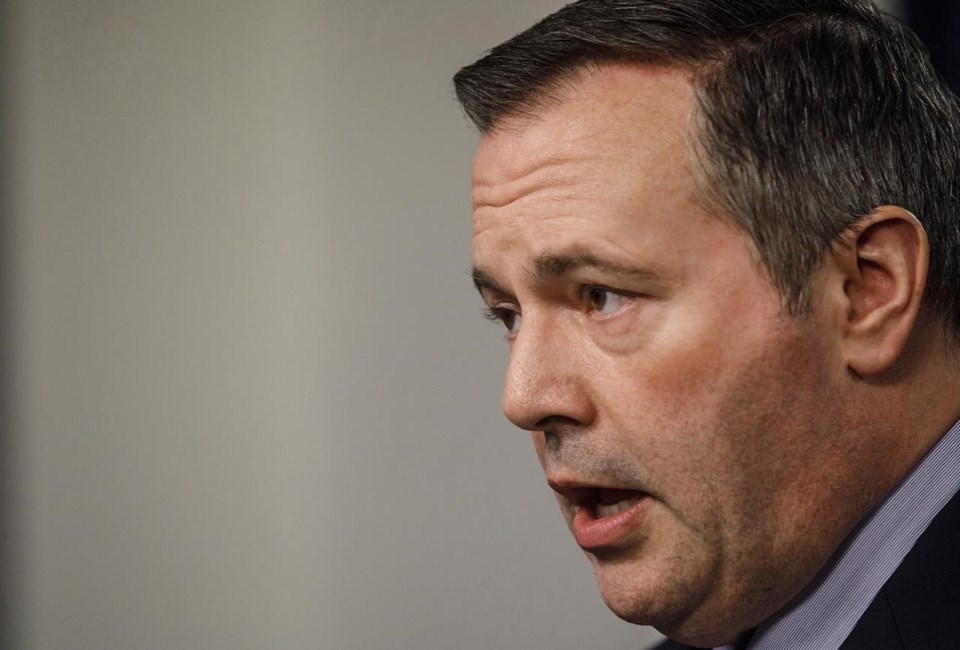EDMONTON — Alberta Premier Jason Kenney says legislation is coming to help businesses facing eviction due to shutdowns forced by the COVID-19 pandemic.
"We are looking very closely at the measures announced last week by the B.C. government," Kenney said Friday.
"Today's announcement is a pretty significant nudge to the commercial landlords who are not co-operating to get with the program."
Earlier this week, British Columbia announced new rules for landlords who are eligible for federal rent relief, but who don't apply and try to evict tenants for missing payments.
Those landlords are barred from kicking tenants out through to the end of the month, when the federal rent relief program is set to end.
Kenney added he is hesitant to bring in a blanket ban, because there may be legitimate reasons to evict a tenant.
The province is looking for more landlords to participate in the Canada Emergency Commercial Rent Assistance program. It's a federal program, but Alberta has committed $67 million toward it.
Businesses that have seen their revenues plummet due to COVID-19 lockdown orders in recent months are able to reduce their rent costs by 75 per cent, but only if their landlord applies for the federal subsidy.
Landlords who apply will be responsible for 25 per cent of the rent. The federal and provincial governments cover 50 per cent.
Kenney said it's in the best interests of landlords to apply rather than evict tenants and try to find new renters in a severely economically depressed marketplace.
Kenney also announced a $200-million program to provide small- and medium-sized businesses with up to $5,000 each to help them reopen following shutdowns during the pandemic.
The Canadian Federation of Independent Business said eviction protection is a key safety net for businesses that don't meet the criteria for the rent subsidy program, yet still need help to stay solvent and reopen.
"We hope the government introduces commercial eviction protection legislation soon and look forward to hearing more details about the eligibility requirements for the small business grant program," Annie Dormuth, the federation's Alberta head, said in a statement.
Many restaurants were ordered closed or had to severely curtail operations earlier this spring as the pandemic gained ground. They are now allowed to offer dine-in service at half capacity.
Restaurants Canada, representing about 11,000 businesses, said the eviction ban and the grant money will be critical.
"Our members tell us they are very concerned about whether they’ll have enough cash flow to pay rent, vendors and other expenses over the next few months," said Mark von Schellwitz, the association's vice-president for Western Canada.
NDP Opposition Leader Rachel Notley said the United Conservative government's move is welcome, but Kenney needs to push the pace.
"We've been calling on Jason Kenney and the UCP to provide direct financial support to small businesses for almost two months," Notley said on Twitter.
"It never should have taken this long for the UCP to support jobs."
Kenney estimates the province has committed $13 billion in direct aid, deferrals and other incentives to get Albertans and businesses through the pandemic.
Also Friday, Dr. Deena Hinshaw, chief medical officer of health, said there were seven new COVID-19 cases overnight — the lowest one-day total since March 12 — and no new deaths.
There were 328 active cases and 44 people hospitalized. Of those, six were in intensive care.
Hinshaw said updated guidelines easing restrictions on hospital visits were to come Saturday.
"Today's numbers mark an occasion to be celebrated," she said. "The number of active cases in our province continues to trend downwards."
Alberta is set to launch the second phase of its economic recovery June 19, when movie theatres, massage therapy and spas are to reopen.
Kenney said the province has flattened the COVID-19 curve and will announce next week whether that date can be moved up.
This report by The Canadian Press was first published June 5, 2020
Dean Bennett, The Canadian Press




